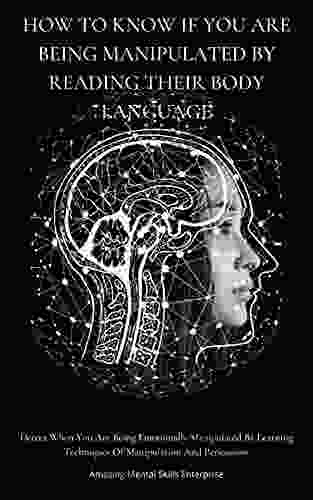Cognitive Habits Help To Cope And Scientific Research

Cognitive habits are the mental processes that we use to think about the world around us. They can be positive or negative, and they can have a significant impact on our mental health.
Positive cognitive habits can help us to cope with stress, anxiety, and depression. They can also help us to improve our problem-solving skills, make better decisions, and achieve our goals.
4.8 out of 5
| Language | : | English |
| File size | : | 5552 KB |
| Text-to-Speech | : | Enabled |
| Screen Reader | : | Supported |
| Enhanced typesetting | : | Enabled |
| Word Wise | : | Enabled |
| Print length | : | 114 pages |
| Lending | : | Enabled |
Negative cognitive habits, on the other hand, can lead to a variety of mental health problems. They can make us feel stressed, anxious, and depressed. They can also lead to self-destructive behaviors, such as substance abuse and gambling.
The good news is that we can change our cognitive habits. With practice, we can learn to think more positively and constructively. This can lead to a number of benefits, including improved mental health, better relationships, and greater success in life.
There are a number of things that we can do to change our cognitive habits. Some of these things include:
- Identify your negative cognitive habits. Once you know what your negative cognitive habits are, you can start to change them.
- Challenge your negative thoughts. When you have a negative thought, ask yourself if there is any evidence to support it. If there isn't, then challenge the thought and replace it with a more positive one.
- Practice positive self-talk. Talk to yourself in a positive way. Tell yourself that you are capable, worthy, and loved.
- Spend time with positive people. Surround yourself with people who make you feel good about yourself.
- Do things that make you happy. When you do things that you enjoy, you are more likely to think positive thoughts.
Changing your cognitive habits takes time and effort. However, it is worth it. By changing your cognitive habits, you can improve your mental health, your relationships, and your life.
Scientific Research
There is a growing body of scientific research that supports the benefits of positive cognitive habits. For example, a study published in the journal Psychological Science found that people who had positive cognitive habits were more likely to recover from depression.
Another study, published in the journal JAMA Internal Medicine, found that people who had positive cognitive habits were less likely to develop heart disease.
These studies provide just a small sample of the evidence that supports the benefits of positive cognitive habits. By changing your cognitive habits, you can improve your mental and physical health.
Cognitive habits are the mental processes that we use to think about the world around us. They can be positive or negative, and they can have a significant impact on our mental health. By changing our cognitive habits, we can improve our mental health, our relationships, and our life.
4.8 out of 5
| Language | : | English |
| File size | : | 5552 KB |
| Text-to-Speech | : | Enabled |
| Screen Reader | : | Supported |
| Enhanced typesetting | : | Enabled |
| Word Wise | : | Enabled |
| Print length | : | 114 pages |
| Lending | : | Enabled |
Do you want to contribute by writing guest posts on this blog?
Please contact us and send us a resume of previous articles that you have written.
Light bulbAdvertise smarter! Our strategic ad space ensures maximum exposure. Reserve your spot today!

 W. Somerset MaughamUnveiling the Wit and Wisdom of Punch: A Journey into Volume 156 of the...
W. Somerset MaughamUnveiling the Wit and Wisdom of Punch: A Journey into Volume 156 of the... Marcel ProustFollow ·2.6k
Marcel ProustFollow ·2.6k Mike HayesFollow ·3.4k
Mike HayesFollow ·3.4k Darren NelsonFollow ·5.1k
Darren NelsonFollow ·5.1k Zachary CoxFollow ·2k
Zachary CoxFollow ·2k Ivan TurnerFollow ·18k
Ivan TurnerFollow ·18k Clayton HayesFollow ·9k
Clayton HayesFollow ·9k Gabriel HayesFollow ·18.3k
Gabriel HayesFollow ·18.3k Bryan GrayFollow ·17.9k
Bryan GrayFollow ·17.9k

 Isaiah Powell
Isaiah PowellWisconsin Clinic Pilots Mobile Crisis Response System For...
MADISON, Wis. - A new mobile crisis...

 Daniel Knight
Daniel KnightUnleash Your Creativity: A Masterclass in Fabulous Nail...
Embellish Your Fingertips with Captivating...

 Clark Campbell
Clark CampbellDetect When You Are Being Emotionally Manipulated By...
Emotional manipulation is a subtle but...

 Eli Brooks
Eli BrooksNeurological Disorders Papers: Dissociative Identity...
What is Dissociative...

 Ricky Bell
Ricky BellAn Introduction to Islam for Jews: Unveiling the Tapestry...
A Bridge of Understanding: Exploring Islam for...

 Octavio Paz
Octavio PazAchieving Longevity: The Complete Step-by-Step Guide to...
**** In the ever-evolving landscape of health...
4.8 out of 5
| Language | : | English |
| File size | : | 5552 KB |
| Text-to-Speech | : | Enabled |
| Screen Reader | : | Supported |
| Enhanced typesetting | : | Enabled |
| Word Wise | : | Enabled |
| Print length | : | 114 pages |
| Lending | : | Enabled |















































